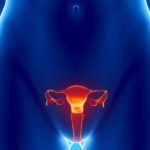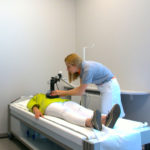 Wróć do poprzedniej strony
Wróć do poprzedniej strony
PROSTATE CANCER – SYMPTOMS, TREATMENT, PROGNOSIS

Prostate cancer (prostate cancer, cancer of the prostate gland) ranks second in the incidence and mortality of malignancies in men.
The number of prostate cancer diagnoses is increasing in most developed countries of the world, mainly as a result of the widespread use of serum determination of the tumor marker PSA in people without clinical symptoms of prostate cancer (so-called „screening”), thanks to greater health awareness and increasing life expectancy of men.
PROSTATE CANCER - TREATMENT
Integrative Oncology Care
At IMC, you will benefit from Integrative Oncology Care, which is designed to speed up physical and emotional recovery, improve quality of life, better tolerate treatment-related side effects and prevent relapse.
An integrative program for cancer treatment can be applied to start from the initial to the advanced stages of cancer, even during the phases when conventional medicine has nothing more to offer. The first step of the integrative approach is a precise and detailed assessment of the patient’s physical, emotional, and body state. The doctor collects the results of biochemical tests, molecular tests, clinical examinations, information about other illnesses, lifestyle, diet, and emotional state. Since the patient’s biological state changes during therapy, the treatment program is updated according to the laboratory and clinical tests. Every aspect of the treatment program is personalized to suit each patient’s individual needs.
Treatment includes:
- Integrative medical consultation and monitoring,
- ten sessions of local hyperthermia,
- Ozone therapy (autochem transfusions),
- intravenous vitamin infusions,
- Ultrasound,
- laboratory tests,
- psychotherapy, group workshops such as mindfulness, breathing, accommodation, and personalized nutrition.
Contact us:
1. Call us: +48 730 597 597
2. Send application form
- Go to Natural cancer treatment
- At the bottom of the page, select your disease
- Complete the form and we will contact you
PROSTATE CANCER - SYMPTOMS
A key role in the early detection of prostate cancer is the knowledge of disturbing symptoms and potential signs of prostate cancer, the occurrence of which should be a signal for urgent consultation with a doctor – a urologist.
Some patients have complaints and some disturbing symptoms from the lower urinary tract, which are more a consequence of the coexistence of benign prostatic hyperplasia. Sometimes the first symptom of generalized stage prostate cancer is bone pain caused by metastasis of the cancerous tumor.
Prostate cancer in the vast majority of cases (>75%) is diagnosed at an early stage. At this stage, the cancer does not cause specific clinical symptoms or may be confused with another disease. The most common symptom of prostate cancer is difficulty urinating and frequent urination. Any man with such symptoms should be examined by a urologist.
Sometimes a growing tumor does not cause the listed symptoms of prostate cancer, and the diagnosis is guided by symptoms related to infiltration of surrounding tissues or metastasis of the cancer to the bones (pain, pathological fractures, anemia) and hip lymph nodes.
EARLY SYMPTOMS OF PROSTATE CANCER
In the early stages of prostate cancer, due to the fact that adenocarcinomas usually develop in the posterior part of the peripheral zone of the gland, the alarming symptoms of prostate cancer are usually absent. In men with benign prostatic hyperplasia, there are complaints caused by a bladder obstruction that are completely independent of the developing cancer.
The most common symptoms that locally advanced prostate cancer gives are the effects of subvesical obstruction. A small number of patients develop hematuria, urinary tract infections and increased micturition complaints secondary to the bladder obstruction.
SYMPTOMS OF PROSTATE CANCER
Rarely, patients with massive lymph node involvement develop swelling of the lower extremities. Men with bone metastases often have prostate cancer symptoms such as pain, less commonly muscle weakness in the lower extremities or prostate cancer symptoms associated with paralysis due to spinal cord compression.
Bone metastases of prostate cancer usually occur in the spine, ribs, pelvic and skull bones, and in the epiphyses of long bones. The symptom of advanced prostate cancer in such a situation may be severe pain.
HOW TO DETECT PROSTATE CANCER?
The determination of serum PSA levels is essential for the diagnosis of a dangerous disease such as prostate cancer, although it should be emphasized that this marker is not specific to prostate cancer – its levels also increase following benign proliferation and prostatitis. Elevated levels of the tumor marker PSA in the serum of a person with a suspicion of cancer, can not be taken as an unequivocal sign of prostate cancer.
The following age-dependent PSA values have been accepted as the norm: 2.5 ng/ml up to age 49, 3.7 ng/ml up to age 54, 4.0 ng/ml up to age 59, 5.4 ng/ml up to age 64 and 6.6 ng/ml up to age 74.
According to recent scientific reports, there is controversy over whether prostate cancer screening based on PSA and per rectum examination and treatment of early-detected prostate cancer has an impact on reducing mortality and extending patients’ lifespan. The US National Cancer Institute believes that the impact of PSA screening on reducing mortality from such an insidious disease as prostate cancer has not been proven. The American Society of Clinical Oncology (ASCO) recommends that the appropriateness of PSA testing should be discussed individually with men who have a life expectancy of 10 years.
PROSTATE CANCER - DIAGNOSIS
In some patients, prostate cancer can be detected by rectal finger examination. However, the diagnostic value of this examination is limited and depends on the experience of the examiner. It is advisable to perform transabdominal ultrasonography (TAUS), which evaluates the urinary system, and transrectal ultrasonography (TRUS) with a high-sensitivity probe that allows detection of non-palpable foci of prostate cancer.
Transrectal ultrasonography makes it possible to visualize the border and internal structure of the prostate gland. An abnormal TRUS result is found in about 20% of prostate cancer patients. TRUS examination is the most accessible and common tool for direct imaging of the prostate.
COMPUTER TOMOGRAPHY IN THE DIAGNOSTICS OF PROSTATE CANCER
In some cases, tests are recommended to assess the local clinical stage of the prostate cancer and, with the exception of cancers with a low risk of spread, the presence of prostate cancer metastases (pelvic CT, chest X-ray, bone scintigraphy, positron emission tomography).
Skeletal scintigraphy is the most commonly used method for evaluating the presence of bone metastases when a diagnosis of prostate cancer is suspected. In patients with PSA levels below 20 ng/ml, there is generally no indication for bone scintigraphy. Positron emission tomography (PET) imaging remains a valuable alternative to scintigraphy.
MAGNETIC RESONANCE IN PROSTATE CANCER
An imaging study useful in cases of locally advanced cancer is multiparametric magnetic resonance imaging (mpMR). In addition to classic radiological morphology, the study evaluates metabolism, tissue perfusion and water diffusion. The mpMR examination is used both in the diagnosis of primary lesions to staging prostate tumors and in the diagnosis of local recurrence of prostate cancer.
PROSTATE CANCER BIOPSY
The detailed diagnosis of prostate cancer is usually determined by histopathological examination of material taken during a transrectal biopsy of prostate cancer performed under the guidance of TRUS ultrasound. A novelty in this field is the so-called fusion biopsy of the prostate under magnetic resonance imaging guidance.
Fusion biopsy increases the detection of prostate cancer and minimizes the need for repeat biopsies.
Contact information
55-010 Żerniki Wrocławskie
Working hours
Have a question?
Use the quick contact form!
Contact information
55-010 Żerniki Wrocławskie




